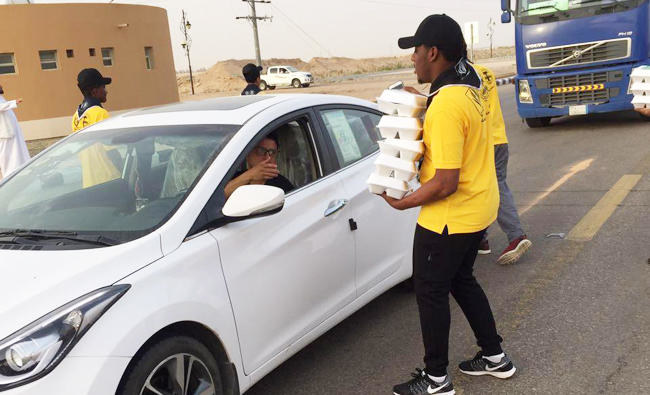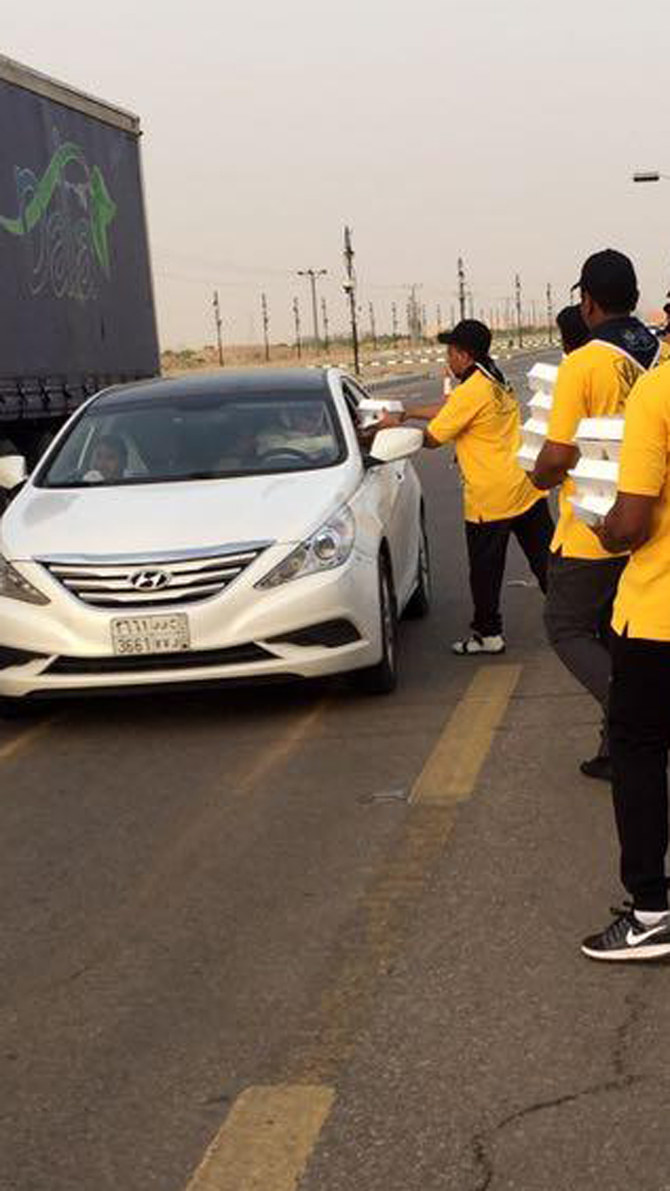TAIF: The Voluntary Work Association in Taif has put its Ramadan plans in place, the Saudi Press Agency reported, including the distribution of food baskets and organizing iftar events.
The association has carried out more than 55 activities since its founding last year and was set up to foster the spirit of volunteering “Since its inception a year ago, the association has accomplished much and carried out more than 55 programs and events in all departments and sections, including charity, community and organizational programs,” said Jamal Al-Rabihi, the association’s president.
“The association has proven itself as a successful and effective partner in all the grand events it has engaged with, such as the ceremonies of National Day, the Souq Okaz Festival, the Flower Festival, Ramadan and other important occasions in our country.” Al-Rabihi said the association was a voluntary and non-profit organization that aimed to promote and develop the concept of voluntary work, as well as nurture a love of volunteering in the hearts of men and women, to serve the nation and Islam.
The association’s work also contributes to the Saudi Vision 2030 reform plan, which aims to recruit a million volunteers by 2030.
The association has different departments, including specialist ones such as medical affairs, sports, culture and media. Men and women form the teams and there are more than 40 teams working across different fields and specializations.
Fatima Al-Juaied, from the events and programs department, highlighted some of the association’s most important achievements.
“One of the association’s most important charity programs is the longest iftar table, measuring 1,600 meters in length, for those fasting on behalf of servicemen killed in the line of duty.
There is also a program through which the association provided high-end buses for those who cannot perform Umrah due to various circumstances.” Some of the most important community programs were those with a patriotic flavor, such as National Day celebrations, she added.
There were more than 1,000 volunteers at the Taif Flower Festival, she said, and the association carried out more than 17 programs in 10 days, including managing crowds at different exhibitions.
Taif voluntary body puts Ramadan plans in place
Taif voluntary body puts Ramadan plans in place

- The association’s work contributes to the Saudi Vision 2030 reform plan, which aims to recruit a million volunteers by 2030
Saudi leadership offers condolences to Kuwait on death of former Olympic committee president

- Sheikh Salman Hamoud Al-Salman Al-Hamoud Al-Sabah died on Wednesday aged 90
RIYADH: The Saudi leadership expressed condolences to the Kuwaiti leadership following the death of Sheikh Salman Hamoud Al-Salman Al-Hamoud Al-Sabah, the former president of the Kuwait Olympic Committee.
King Salman and Crown Prince Mohammed bin Salman expressed their condolences and sympathy to Kuwaiti Emir Sheikh Mishal Al-Ahmad Al-Jaber Al-Sabah. Additionally, the crown prince sent a separate cable of condolences to his Kuwaiti counterpart, Sheikh Sabah Khaled Al-Hamad Al-Mubarak Al-Sabah.
Sheikh Salman died on Wednesday at the age of 90. He was the former president of both the Kuwait Football Federation and the Al-Arabi Sporting Club. Beginning his career as a football player at Al-Arabi in the 1950s, he dedicated 70 years to developing sports in the country.














